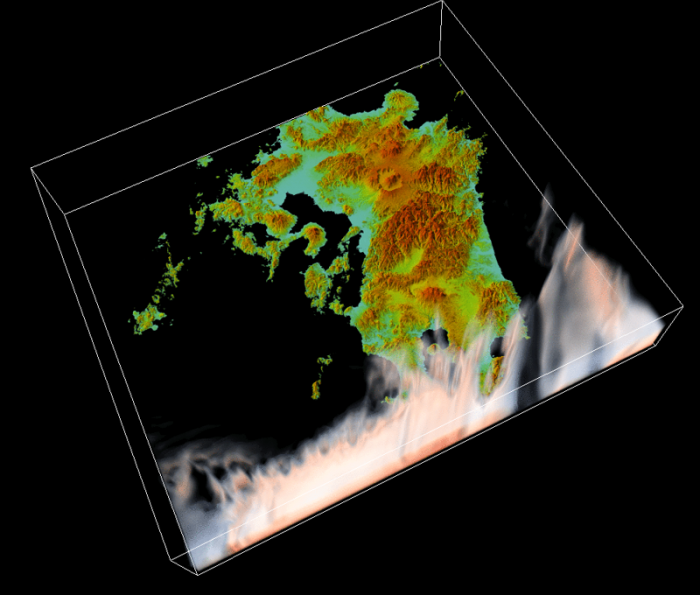STAFF

Dr. Kei ISHIDA
Associate Professor, Center for Water Cycle, Marine Environment and Disaster Management
- Research Fields
- Hydrology
- YouTube
- Featured Article
- keiishida[at]kumamoto-u.ac.jp
*Please replace "[at]" with @.
Research interest
The primary goals of this research consist of three key aspects: employing advanced deep learning approaches to address hydrological problems, evaluating the suitability of such deep learning techniques, and simultaneously developing new deep learning architectures specifically designed for hydrological challenges. Deep learning has emerged as a prevalent approach across a wide range of fields, and its popularity within hydrology has been steadily increasing. However, due to the extensive array of deep learning methods and their continuous improvement and development, it is essential to integrate these state-of-the-art techniques into hydrological studies. Furthermore, while the use of deep learning techniques in hydrology continues to expand, there is a noticeable lack of research exploring their suitability. Most investigations focus on introducing novel methods or analyzing their accuracy. It is crucial, however, to examine the nature of relationships between variables that deep learning algorithms can identify. This research endeavor will address these issues and subsequently attempt to establish new methods based on the knowledge gained from the investigations mentioned earlier.
The current study employs deep learning architectures, such as Recurrent Neural Networks (RNN) and Convolutional Neural Networks (CNN). RNNs are particularly effective for processing time series data, which is prevalent in hydrological settings. Consequently, RNNs will be applied to address relevant hydrological problems. Simultaneously, CNNs are proficient at deriving information from two-dimensional or multi-dimensional datasets, including atmospheric data, precipitation field data, ocean data, and more. CNNs will be deployed for these applications. In addition, new deep learning architectures, such as graph neural networks and transformers, will also be employed. These architectures, along with others, will be used to tackle a variety of hydrological issues. For example, the research aims to improve the accuracy of precipitation or flood forecasting and enhance the reliability of future projections of hydrological variables through the application of deep learning techniques. As a result, this study holds the substantial potential to inform and support disaster prevention and mitigation efforts.

Achievement
Publications
- 2024
- 2022
- 2021
Awards
Intelligence, Informatics and Infrastructure Outstanding Potential Paper Award (2021) 令和3年度「AI・データサイエンス奨励賞」, Subcommittee on AI Application in Structural Engineering 土木学会 構造工学委員会 「構造工学でのAI活用に関する研究小委員会」, November 29, 2021
→NEWS
- STAFF
-
- Wei XU
- Shinichiro Sawa
- Tetsuya KIDA
- Armando T. QUITAIN
- Junhua WANG
- Yoshihiro SEKINE
- Akira UEDA
- Yusuke INOMATA
- Muhammad Sohail AHMAD
- Jonas Karl N. AGUTAYA
- Nobleson KUNJAPPY
- Prafulla Bahadur MALLA
- Mohammad Atiqur RAHMAN
- Reetu Rani
- Kei TODA
- Tomoyasu MANI
- Agus Pulung SASMITO
- Tung Thanh TRAN
- Dario ZAPPA
- Daniel P. ZITTERBART
- Mitsuhiro AIDA
- U Rajendra ACHARYA
- Dmitri Aleks MOLODOV
- László PUSZTAI
- Yufeng ZHENG
- Gaochuang CAI
- Masahiko FURUTANI
- Hiroki MATSUO
- Zhongyue ZHANG
- Adam Karl SCHWARTZKOPFF
- Takashi ISHIDA
- Takumi HIGAKI
- Takahiro HOSONO
- Kei ISHIDA
- Makiko KOBAYASHI
- Ruda LEE
- Yuta NAKASHIMA
- Shin-Ichi OHIRA
- Atsushi SAINOKI
- Mitsuru SASAKI
- Keitaro TAKAHASHI
- Suttichai ASSABUMRUNGRAT
- Josep-Lluís BARONA-VILAR
- Nicorae BARSAN
- Jorge Norberto BELTRAMINI
- Olivier BOUTIN
- Paul BOWEN
- Pierre BREUL
- Maria Jose COCERO
- Patrice DELMAS
- Martin DIENWIEBEL
- Martino DI SERIO
- Derek ELSWORTH
- Carolina ESCOBAR
- Bruno FAVERY
- Etsuko FUJITA
- Tomonari FURUKAWA
- Jens HARTMANN
- Mohammad Abul HASNAT
- Yang JU
- Hoon KIM
- Ick Chan KWON
- Wen-Shing LEE
- Youn-Woo LEE
- Pavel LEJČEK
- Dongfang LIANG
- Bo LIU
- Tao LIU
- Hui LU
- Reiko ODA
- Yong Il PARK
- Shie-Ming PENG
- Christian RENTENBERGER
- Parasuraman SELVAM
- Amir SI LARBI
- Konstantinos Daniel TSAVDARIDIS
- Gioacchino (Cino) VIGGIANI
- Thomas WAITZ
- Yan XIAO
- Zhenghe XU
- Kazuki TAKASHIMA

